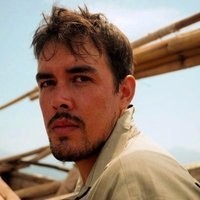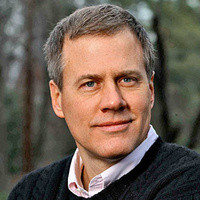
Rajneeshees: From India to Oregon (Parts 1-20)
Bhagwan Shree Rajneesh and his spokeswoman Ma Anand Sheela moved their commune and its thousands of followers from India to an Oregon ranch. The poisoning of a nearby town, election manipulation, and plans to murder government officials and the writer of this story soon followed.
The events chronicled in this original 1985 series are the basis for the Netflix documentary Wild Wild Country.
-
Part 1
How followers of Bhagwan Shree Rajneesh came to Oregon from India, and transformed eastern Oregon’s Big Muddy Ranch into Rancho Rajneesh.
-
Part 2
How a small-town Indian boy became a religious guru that followers compared to Jesus Christ, Buddha and Krishna.
-
Part 3
Before coming to Oregon, the Bhagwan built his following in Poona, India, attracting disciples from around the world.
-
Part 4
What are the real reasons the Rajneeshees left India for Oregon? Rising tensions with the Indian government and police, and a lot of unpaid taxes.
-
Part 5
Tales of smuggling – gold, money and drugs – dogged the Rajneesh movement since the late 1970s, and continued when they arrived in the United States.
-
Part 6
Somewhere between India and Oregon, the life-or-death melodrama surrounding Bhagwan Shree Rajneesh’s failing health dissipated like a contrail against a summer sky.
-
Part 7
How Ma Anand Sheela used family ties to help purchase the land for the Rajneeshees’ Oregon commune.
-
Part 8
Ma Anand Sheela was much more than the guru’s personal secretary. She was a tigress of the two-minute TV interview, and wielded words like weapons.
-
Part 9
To turn Racho Rajneesh from farmland to a city, the Rajneeshees needed to incorporate. It was a blurring of church and state that caught the eye of Oregon Attorney General Dave Frohnmayer.
-
Part 10
While followers talked about free love, the Rajneeshees armed themselves with assault weapons, grenade launchers and submachine guns, turning Rajneeshpuram into one of the most-heavily armed places in the state.
-
Part 11
Followers of the Bhagwan saw their ranch as a place of peace, but the universal bliss was laced with threats of violence and threads of paranoia.
-
Part 12
Antics by the Rajneeshees during legal proceedings – including making faces and obscene gestures – confounded lawyers and judges.
-
Part 13
Bhagwan Shree Rajneesh hardly led a humble life, with his diamond-encrusted Rolex watches and fleet of 74 Rolls-Royces.
-
Part 14
The Rajneesh financial machine reached around the globe, and channeled millions of dollars to its Oregon headquarters.
-
Part 15
How a lust for money propelled the Rajneesh movements into the arms of Big Business.
-
Part 16
Ma Anand Sheela and other ranch officials kept a tight grip on followers.
-
Part 17
Rajneesh used various techniques – some of them strong-armed – to separate followers from their cash, property and jewelry.
-
Part 18
Rajneeshees bristled at the word “cult,” but it was clearly one according to religious experts.
-
Part 19
Of all the threats to the Rajneesh movement, an immigration fraud investigation that was four years in the making loomed the largest, and focused on arranged marriages and fake relationships
-
Part 20
The Rajneeshees took advantage of sleepy immigration officials to sneak followers into the United States. The government then bungled cases, and irritated potential witnesses to the point that they no longer cooperated.
















